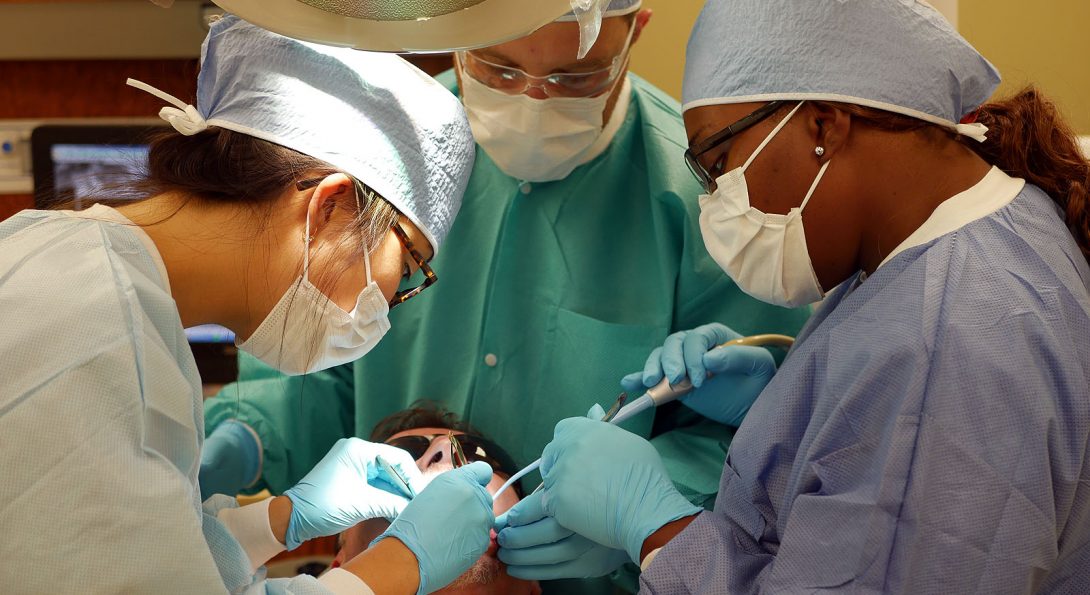The application to join medical school follows a rigorous exercise that includes attending an interview. Some guidelines and regulations guide this process, which will be reviewed in this article. The medical school admission process is different compared to other college applications and admissions. Medical schools receive many applications from students during every opening for applications. Some applications are accepted, while others don’t get accepted. For medical school applications, undergraduate course requirements are needed. For those who year to join the medical practice, we are going to give you the information you need when it comes to medical school admissions consulting.
A report by the AAMC (Association of American Medical Colleges) indicated that medical schools in the US received 46% of admission applications between the years 2005 and 2007. From these applications, those admitted into medical school were less than half of all applicants. This means that students who make their application for medical school must ensure proper and outstanding application. You can also apply to work as an intern in your preferred medical school to gain knowledge and experience on how to handle this procedure.
You should begin to prepare for the medical school admissions consulting process right from college. It is in college that you should begin to prepare as you pursue your first-level medical certification. Work on your academic work to ensure that your grades and academic record are appealing and competitive. Focus on the courses that are required to join the medical school and also make sure that you perform well. Good grades will make you competitive and improve your chances of joining medical school. There are ways to ensure a good academic record in your medical course. You can take pre-med programs in your college, for instance, to help you focus and perform better. This would work well for you no matter what science course you are majoring in.
Application to join medical school
Application to join a medical school begins with the selection of preferred schools. You can access a list of as many medical schools as are available, and you can select mainly based on your major or concentration. Once you have selected the schools, review the requirements needed to make an application. It normally takes up to one year from when you make your application to when you receive an acceptance letter. Submit secondary applications for your first choice school and where you are most competitive. For your second choice of school, you should apply to take interviews as a way of seeking admission.
In reviewing your application, a medical school will not focus so much on your undergraduate major. They mainly care about the general outlook of your entire undergraduate coursework. According to the Association of American Medical Colleges, the majority of medical schools require applicants to have completed a particular number of credit hours in organic chemistry, general or inorganic chemistry, biology, physics, and English.
Various medical schools have their own set of requirements and policies. There may also be additional requirements for joining some of the medical colleges. Some schools require applicants to have completed a level of zoology, biochemistry, anthropology, or psychology.
While planning to apply for medical school, keep in mind that the credits you earn in the College Level Examination Placement (CLEP) and Advanced Placement (AP) are important requirements. For some medical schools, you cannot have an AP credit in place for one or more undergraduate science courses. Review the requirements for joining your preferred medical school to know whether you will be required to take any course for AP or CLEP credit that you have.
Other factors that are considered in reviewing your Medical school application are your college club memberships, volunteer work, and previous employment, if any. These make you more competitive and more likely to secure admission into your preferred medical college. Medical schools advise students to go for advanced courses, an independent way of study, and to ensure completion of research work during their undergraduate studies. Membership in an academic club is also encouraged as it helps students in a particular profession to mingle and exchange ideas outside the class setup.
If the undergraduate college has a pre-med program that you were part of, it helps as you seek to join a medical school. Any major that a student concentrates on is okay, provided the student was part of a pre-med program during their studies. This program helps to prepare students through advice and insights on their preferred field of practice. Internships are also a great way of getting first-hand experience on being in a medical school and the requirements.
The pre-med program also entails particular coursework for medical students in preparation for medical school. This shows that, for a medical student, undergraduate studies are very important in determining their acceptance into medical school. It is, therefore, advisable for the students to be active in activities and networking as they pursue their undergraduate education.
Requirements for joining medical school
For the majority of the medical schools in the US, applications close during the fall season. It is, therefore, advisable for students to start planning the application process early. The most suitable time is before the final year of your undergraduate studies during summer. This way, you have enough time to prepare and complete your application. In your application, ensure that your grades and requirements are in order. You will most likely be required to fill out an application form and attach your scores and courses taken before you submit. Begin the process by carrying out some research on the various medical schools you can or wish to attend.
One of the factors to consider when searching for a medical school is your interests. Your area of interest might be primary care or medical research, and from there, identify medical schools that are most suitable for your interests. You also need to consider the location of the school and the expenses of studying there. Some of the sources for information include the websites of medical schools and neutral sources, especially for reviews and ratings. Also, outsource good Medical school admissions consulting services for more information. Focus on understanding your preferred institution well, as this will make you comfortable and confident in your application.
From your research, come up with a list of 10 to 12 medical schools and their application deadlines. The Medical School Admission Requirements are published by the AAMC every year. This is a detailed guide on the requirements to join medical schools in the US and Canada. You can access a copy of this guide through purchase or on the reference section of your college. Review the guide as you prepare your application and review the particular website too for any additional information.
The main information that you need to look out for in preparing your application is:
• The application deadline
• The application fee
• Whether to submit your college transcripts or test results alongside the application
• Required tests and when, before or after the application deadline, you will need to take the tests
• The required recommendation letters
• Whether the medical school is taking part in any special program to make the application process easier
Application services
Medical school application services will help to save you money and time during your application. There is a team of institutions participating in every program, and you, therefore, should submit your information in a particular place. Using particular application services to apply to several medical schools will also lower your application costs. You can view the application service that a school is participating in on the MSAR or school website. You can also get adequate information and guidance from Medical school admissions consulting.
One of the biggest application services in the US is the AMCAS (American Medical College Application Service). The AMCAS is part of the Medical Colleges Association AAMC, which publishes the MSAR. You will be charged $160 to apply for your first designated medical school through AMCAS and an additional $31 for every other medical school you apply to. Depending on where you are from, several application services will give you discounts. The TMDSAS (Texas Medical and Dental Schools Application Service), for instance, charges $75 for the first choice for residents of Texas, while Texas non-residents pay $120.
Every application service will require you to submit your test scores and college transcripts. The AMCAS service also helps any participating medical school to view your Medical College Admission Test results without any effort from you. You can also release your MCAT results to different application services. You can learn how to do this from the MCAT website. Application deadlines and requirements are set by each medical school even when they are using an application service to ease the application process. Do some Medical school admissions consulting for more information on how to make a good application.
Application cost
Like any other college application, medical school applications cost money. The MCAT for a medical school costs approximately $230, while initial application fees for your first college choice cost approximately $500. The application fees apply if all the schools you choose are participating in AMCAS.
For every secondary application you make, you will be required to pay an additional $50 to $150. Other expenses include paying transport costs to the medical school when you get invited for an interview. Plan for a budget of about $1,300 to cater for all costs you may incur. Reach out to any good Medical school admissions consulting services to help you in your planning.
Here’s a streamlined checklist to help you organize your medical school application process:
Medical School Application Checklist
- Research and Select Schools
- Identify your preferred medical schools.
- Verify each medical school’s prerequisites, deadlines, and policies.
- Prepare Undergraduate Requirements
- Maintain strong grades in required courses (organic chemistry, biology, physics, English).
- Complete additional recommended courses (biochemistry, psychology, etc.).
- Join a pre-med program and participate in relevant clubs and research projects.
- Register and Take Required Tests
- Schedule your MCAT well in advance.
- Confirm each school’s policies regarding CLEP or AP credits.
- Organize Your Application Materials
- Compile transcripts from all colleges attended.
- Request recommendation letters from faculty, researchers, or employers.
- Write a strong personal statement that reflects your motivation for a career in medicine.
- Submit Primary Applications
- Complete Secondary Applications
- Prepare to answer school-specific essay questions.
- Allocate time to write thoughtful responses.
- Pay secondary application fees (typically $50-$150 per school).
- Prepare for Interviews
- Research each school’s mission, values, and recent achievements.
- Practice answering common interview questions.
- Plan professional attire and set a confident, respectful tone.
- Financial Aid and Budgeting
- Estimate total costs (including interview travel and additional fees).
- Explore financial aid options once accepted.
- Post-Interview Follow-Up
- Send a thank-you note to interviewers.
- Check for any additional requirements or acceptance timelines.
- Accept Offer and Plan Next Steps
- Confirm enrollment upon acceptance.
- Begin financial aid applications, if needed.
- Familiarize yourself with your new school’s resources and programs.
This checklist will guide you through each step of the application process, from preparation to acceptance.
The first application to join medical school
When you are done with your preparations for medical school application, it’s time to make your first submission. For the first application, you will most likely be required to submit your application form, test results, a personal statement, and recommendation letters. Immediately after or at the same time you submit your application form, you should submit the original college transcripts. Your official transcript should be printed and stamped with the official seal of your college, and the registrar of your undergraduate college should mail it directly to the medical school that you are applying to. You will mostly be charged for every official transcript you need from your college, and for medical school applications, you must use an official transcript. If you happen to have undertaken your undergraduate studies in more than one college, send your official transcripts from every college you have attended.
You will need to submit your test scores on or immediately after the application deadline. You can visit any test website for information on how to submit your test scores to the medical schools that you are applying to. Medical school admissions consulting will also help you with this information. For the students who take the MCAT, medical schools who take part in the AMCAS program will be able to directly access your test score. If you are, however, applying to join a medical school that is not part of AMCAS, you should permit AMCAS to submit your scores to any other application service. You can also print and submit your score personally.
There are normally three centralized application services online. These are the AMCAS, which is for MD admissions, the AACOMAS, which is for DO admissions, and the TMDCAS, which serves medical schools in Texas. Medical school admissions consulting encourages students applying to join a medical school to do so earlier than the deadline. This is because applying in a rush is most likely going to have you create room for errors.
Recommendation letters are another mandatory requirement, as mentioned earlier. The importance of good networking and socializing in college comes into play in this section. Your professional and academic relationships can help you get great recommendations for your medical school application. It is advisable that the person recommending you send the letter directly to the school you are applying to. Recommendation letters can also be submitted to a particular application service that all participating schools can access. Different medical schools, however, might have varying requirements for sending recommendation letters. Ensure that you are fully aware of the expectations and follow all requirements.
You will also be required to submit a personal statement for your first application. You can research online or from books on how to write a competitive personal statement. Medical school admissions consulting or attending a workshop will also give you insight into how to create a good personal statement. This is a statement on who you are and your reasons for wanting to become a medical practitioner. Before submitting it, read through it to ensure that the grammar is okay and that the information appears as you would want it to. You can also give it to a professional, such as a lecturer, to read through it or a friend to give you feedback. Also, follow all requirements concerning the personal statement as directed by the medical school you are applying to.
Getting recommendations
Recommendation letters are very essential in your application for medical school. They are the voice of professionals to the medical school about you. For this reason, it is advisable to get recommendation letters from professionals such as medical faculty in the college, researchers, employers, or associates that you have previously worked with. Recommendations are different from resume referees. It is, therefore, not advisable to ask your friends and doctors who know you simply as a patient to recommend you.
When you approach a professional and request him or her to recommend you, you should inform them what the recommendation is for. This helps them to come up with a good basis for the letter. Again, they are professionals who have most probably written other recommendations for different students before. This means that they are in a good position to advise you on how to go about it. You should also give the person a brief of what you want to be captured in the letter. Note that the letter is an official document that should focus on your qualifications and interests. Once you receive the recommendation letters, send a message of gratitude to those who recommended you. Recommendation letters should be sent directly to the medical school from the recommending person. Applying for an internship at a medical school is a good way to learn how things work and how to be competitive.
Secondary applications and interviews
Most of the first applications are processed through the screening of candidates. The first screening involves checking whether you have met the standard requirements for joining the institution. They will mainly check MCAT scores, whether your GPA is strong enough, and whether you meet the minimum requirements. After the first screening, the medical school will want to narrow down the number of applicants who will proceed to the next step. The team reviews your recommendation letters and personal statements, and they are compared to those from other candidates. These documents should, therefore, be very competitive for you to be considered. Note that the medical school staff may consider a personal point of view regarding either of your documents, such as your interests or dislikes, to determine whether or not you can proceed to the next stage.
After this first review and consideration, you may be required to fill out and submit a secondary application. Secondary applications tend to be more personal. In this stage, you will be expected to respond to questions with short essay answers. The secondary application will have a deadline that gives you time to properly respond to the questions. Take time, therefore, and respond efficiently while also preparing to pay any additional fees for this second step of the application process.
Screening of the secondary applications begins after the set deadline. Those who qualify at this stage are invited to attend an interview at the medical school. The interview can be carried out as a question-and-answer interview or a one-on-one interview session with the school panel. One of the ways to get ready for the interview is to ensure that you know about the medical school in detail. Do some research about the school’s mission, goals, achievements, and more before the interview. Prepare to interact with the school’s staff like a professional who is also interesting. Remember that this is an interview like any other, and your appearance matters. Prepare to dress appropriately and in a manner that shows professionalism. Be early on the day of the interview and ensure your responses are honest.
Good behavior during the interview is important, from your body language to the tone of your voice, no matter the questions you might be forced to answer. The easiest way to prepare for an interview is to search for commonly asked questions in such an interview and have a friend, colleague, or any professional ask them to you. This way, you are rehearsing how you would handle the real interview. Am sure that sounds fun and interesting. Also, if you have served as an intern in this or any other medical school, this might make the process easier for you. Final decisions on applications are made after the interview. In the US, interviews take place mainly between September and March, and this is information you can use to prepare.
When you are done with the application process, and you complete your interview, you wait for a response from the medical school. When you receive an acceptance letter to your dream medical school, you have the go-ahead to start familiarizing yourself with the institution and enrolling for classes. Receiving an acceptance letter also means that you can apply for available financial aid if you need it. Financial aid for medical school students is a good way for you to study, earn, and not be strained if you are not in a position to afford it. Having worked as an intern in a medical school is a good way to familiarize oneself with the procedures of being part of the institution.
Most medical students desire to go to medical school, but the requirements are high. With proper guidance and hard work, however, it is possible to achieve that desire and further your medical studies with professionals. One of the best ways to interact with fellow medical professionals is by applying for an internship at our medical school. We hope we have provided clear insight regarding medical school admissions consulting.





